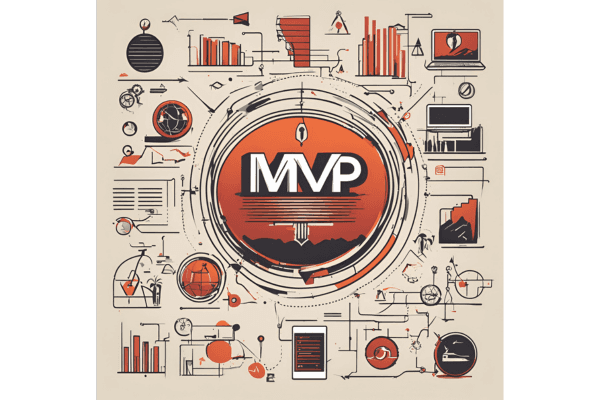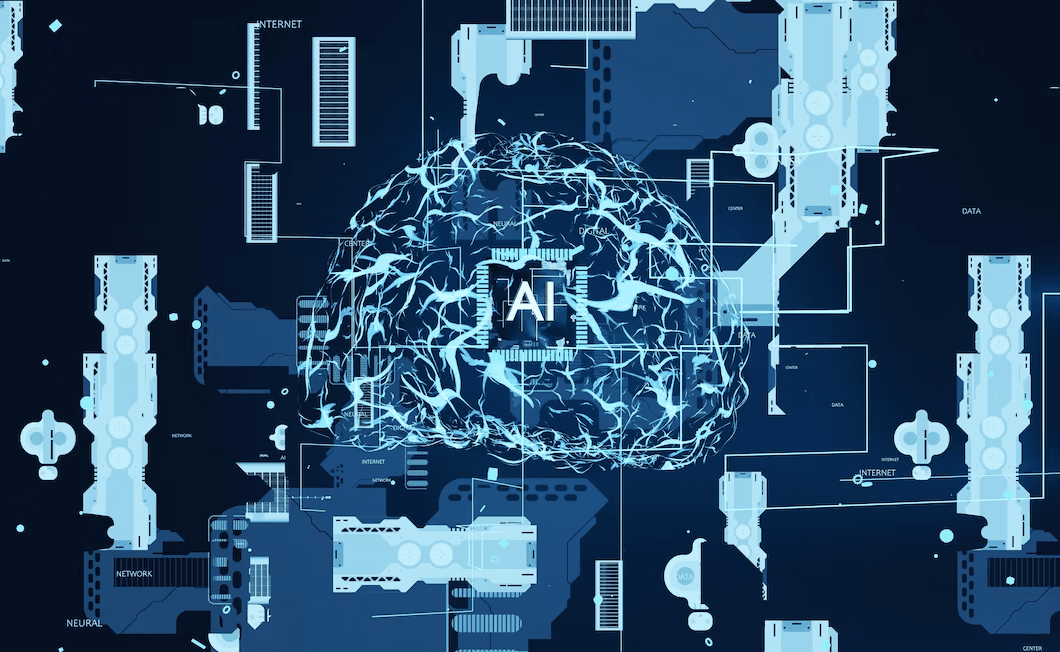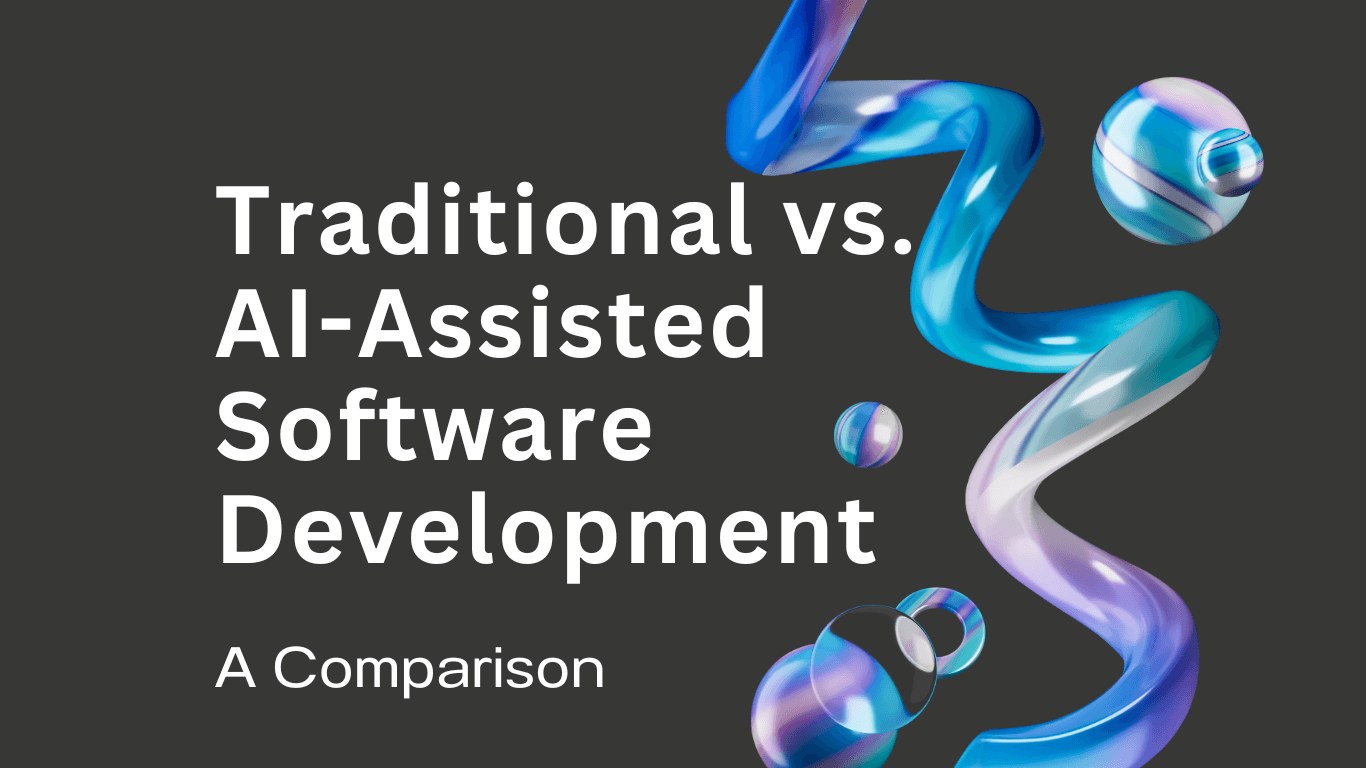MVP AI: the New Horizons of MVP Development
MVP development can be an effort-intensive process that takes a bunch of time and resources for management and implementation. Artificial intelligence can simplify it, making most angles of the minimum viable product creation more efficient and accurate than before. Metatable will be glad to share our insights into MVP AI development, its advantages, and the challenges you may face.
What is MVP?

source: generated in Canva
Eric Ries, the author of the MVP concept, stated that the Minimum Viable Product is a product version that lets the team collect the maximum amount of intel about the final product’s customers with the least effort.
When we are talking about MVP in product development, we usually mean the minimum set of features that could satisfy early adopters. The main goal of MVP is the quick development and release of the product. It focuses on collecting live feedback and impressions that can help shape reasonable adjustments and improvements. All in all, the MVP strategy helps to make more informed and prepared decisions about the future of development.
What makes it so useful? In simple words: it saves costs and time and lets you focus on delivering the core functions to solve specific user tasks or pains with minimum post-release risks.
MVP can serve as a “testing grounds” solution. It helps study the market, shape more relevant requirements for the product, and define possible challenges and risk factors. Such preparation helps direct and drive the whole project most insightfully.
One more advantage of MVP is the attraction of attention to the product in the early stages. This is an opportunity to present the prototype, check the reaction, and use it for final development after upgrades and adjustments.
How Can AI Improve the MVP Development Process?
MVP can be of immense help for future projects, but it can also cause a pain of its own due to the required time, resources, and technical expertise. Imagine you could avoid most of the difficulties and jump straight into shaping your MVP idea. Artificial intelligence can help speed things up without sacrificing quality and, instead, getting a lot more development process advantages.
For now, let’s review the most valuable benefits specifically for MVP development.
Speed, efficiency, and cost savings
AI can automate a wide range of time-consuming tasks, such as data processing or pattern recognition. It helps to cut down on necessary human efforts and, as a result, associated costs. Natural language processing algorithms take care of feedback collecting.
When integrated with other systems and tools, they can create personalized offers and recommendations, handling customer support requests promptly. AI can simulate a variety of user interactions, detect bugs, and boost MVP performance as well.
Data-driven decision making
AI can track user feedback, interactions, behavior patterns, and preferences. It helps to understand how well the product serves your target audience. This way, you can detect and exclude weak points, decide which features need upgrades, and optimize further. AI-powered algorithms can predict future behaviors based on user data and pattern analysis.
Scalability
AI-powered systems are well-scalable. They can be easily tuned for operating with huge data volumes without serious performance degradation. This is vital for a transition from an early stage to a broader user base. This also makes products adaptable to the growing demands of the changing market.
What AI Features Are Beneficial for MVP Development?

source: freepik
We at Metatable believe that AI MVP development must be shaped by the right tools that ease the creation and enhance the final product even further.
Beneficial features for MVP development:
Natural language processing: NLP is critical for MVPs with chatbots, virtual assistants, analysis tools, or language translation needs. It helps AI to understand, process, and react to human language;
Machine learning techniques: ML is fundamental for creating predictive models and making data-driven decisions. Machine learning algorithms can help generate personalized recommendations, predict user behavior, or detect anomalies. Different machine learning models can analyze datasets, identify patterns, and offer optimization routes for products;
Image recognition: it enables AI to recognize, analyze, and interpret visual information from images and videos. If your AI MVPs involve visual functionalities, this feature will become essential. It can also serve as an option for user experience enhancement and security improvement;
Predictive analytics: the analytical powers make AI incredibly helpful for any MVP type. An AI-powered model can analyze data and provide accurate forecasts about future trends, user behavior, and possible needs. This allows for building effective plans, making strategic decisions on MVP growth, and boosting product performance;
Personalization: artificial intelligence is a perfect tool to tailor user experience according to their history and real-time interactions. It can develop personal offers and recommendations autonomously, enhancing user engagement and satisfaction while running “behind the curtains”;
Automation and optimization combo: these two features are also extremely valuable for any type of MVP as they can make repetitive routine tasks automotive. Optimization can upgrade the usual workflow to a new level. You can make planning, scheduling, and resource allocation much easier and faster.
When you choose AI features for your future MVP, you need to consider what exactly you are looking to achieve. Plan what you want to offer to users and select the features that will work best for your goal. It is good to start with the most valuable specifically for your TA and product purposes.
How Can AI Tools Help in MVP Development?

source: freepik
Artificial intelligence tools can be an essential instrument in various aspects: workflow process streamlining, user experience enhancement, resource allocation, and many others.
The contribution of AI tools in MVP development:
Automating repetitive tasks. As it was mentioned before, task automation saves a lot of time and effort, and it is no different for the development process. AI can automate code generation, testing, and deployment stages, cutting the time required for working on common functionalities. You can generate test cases and predict potential issues, all autonomously;
Enhancing frontend development. One case of integrating AI-powered virtual assistants with your AI MVP’s front end is when you set up virtual customer support powered by NLP. Furthermore, AI tools can analyze user interactions within the MVP interface and suggest ways to optimize layout, content, and navigation accordingly;
Streamlining backend development. AI can automate data acceptance, transformation, and integration. You can be sure the data is fully prepared for further analysis, inspection, and decision-making within MVP. You can use AI analytic tools to predict peak loads, improve resource allocation, and scale much more easily;
Data handling and processing. AI enables real-time data processing, which leads to more dynamic reactions to the incoming data. This is especially useful in projects where timely insights and responses are vital for operation.
Now you can see how much difference artificial intelligence can make for the development process. It offers a new level of product quality, improved speed, and assistance in time-consuming tasks that may potentially slow down the whole workflow.
Challenges You May Face in AI MVP Development
The benefits that AI can bring to MVP development are obvious. Although, we should mention that it could also bring some challenges:
Privacy and security issues
AI can process huge amounts of data. It makes the whole job much easier, but you should keep in mind that responsible data processing is essential. You need to ensure data privacy and security throughout every stage of the development lifecycle. This means involving resilient security measures. Focus on access control, data anonymization, and encryption.
Data resources
AI models need a significant amount of high-quality, readable data for proper training and validation. You also need to ensure that the model receives diverse data to be able to react to different scenarios. It may be quite challenging to get such resources in the early stages of MVP development.
Inadequate data may lead to inaccurate predictions. Also, integration from different data sources may call for preprocessing and normalizing all the data. So make sure to pay attention to what kind of data you feed to your model.
Scalability
As much as it is the benefit of AI in the development process, it could be a challenge as well. You need to control the process and make sure that the project can handle growing traffic and data demands. This is especially crucial when scaling MVP from a few-user version to a platform with hundreds of users.
Choice of algorithms
Algorithms can perform differently and depend on domains and data characteristics. So choosing the proper AI model and algorithms that suit your task can be a challenging step.
Skills and expertise
You need to keep in mind that AI doesn’t replace the developer. You still need specialized knowledge in machine learning, data science, and software engineering. Such expertise will help implement AI solutions as part of MVP to the best of one’s team's abilities.
These challenges remind us that AI MVP development calls for serious planning. Careful management of difficult aspects will help fend off all the potential hardships, witness the full potential of AI, and achieve the best possible results in the end.
Future Trends in AI and MVP Development
The full-on introduction of AI into MVP development cases is on full-throttle. The more we study AI’s potential in this particular niche, the more patterns and market-shaping tendencies we see.

source: created in Canva
Process automation
We believe that in the future, the scale of global tech market automation will only rise further, and more aspects will become AI-powered and smart. The possibility of delegating routine and repetitive tasks to AI is already there, yet it still promises to expand over more angles of performance and management.
Real-time approach
AI requires less time for data processing procedures. It can process data in real time. This grants faster responsiveness and immediate adaptation to user requests, interactions, and feedback. Continued learning helps your AI model to provide more accurate, intuitive, natural, and quicker reactions.
More accurate predictions
AI’s predictive capabilities are already impressive, and they will become more refined with more learning and training taking place on a global scale. With a firm demographic knowledge, AI models will be able to achieve even more accurate predictions of market trends and user reactions.
Ethics and responsible AI development
Bigger involvement of AI in the MVP development process may cause a more intense focus on ethics, privacy, and security issues. It may lead to more reliable data security and privacy protection measures.
The reality and trends prove that AI already plays one of the key roles in the enhancement of the functionality, usability, and accessibility of MVP creation.
Final Words
Artificial intelligence can become a reliable partner in MVP development. It can help to speed up and optimize the process from the back end to the front end, and make the project more attractive to users. By delegating routine tasks to AI, you can get more time to cover other aspects quicker and reduce the time required for development.
As you can see, the benefits it brings to MVPs can make a difference and give you an advantage in the future market. It is a new horizon in the development world that you can reach, improve the MVP capability, and achieve more productive results within shorter stretches of time.
If you are thinking about where to start, we have the answer for you. Metatable is a platform where you can build the connection between artificial intelligence and your future MVP. It is an opportunity to make a step from the idea to its realization in no time.








